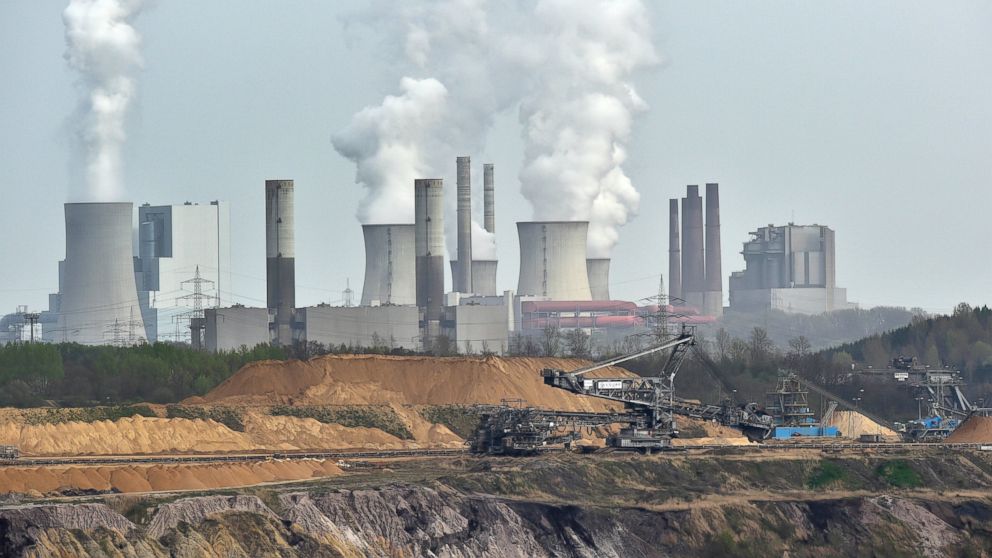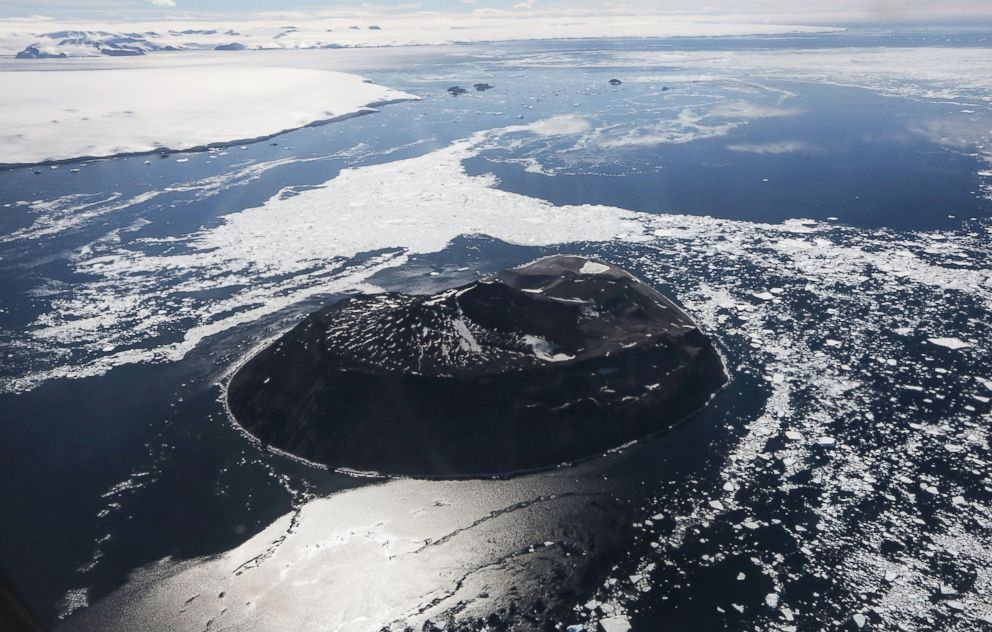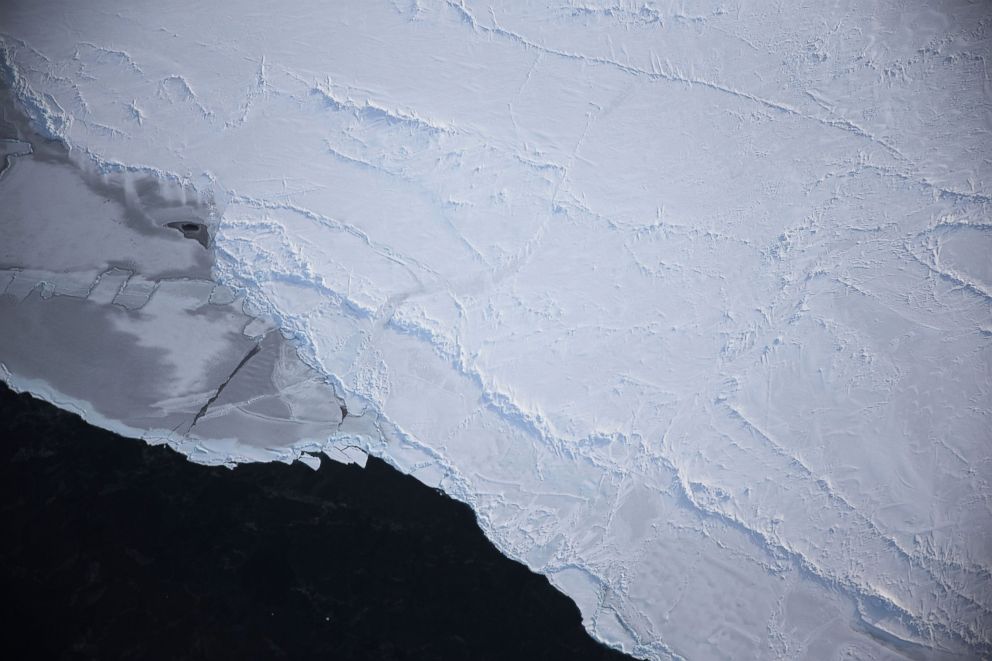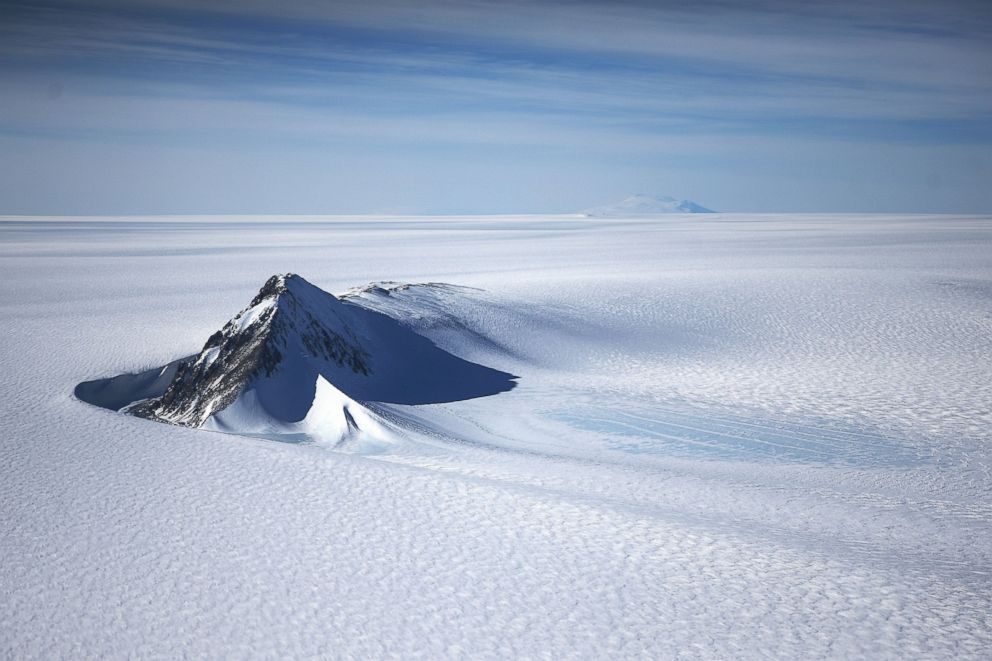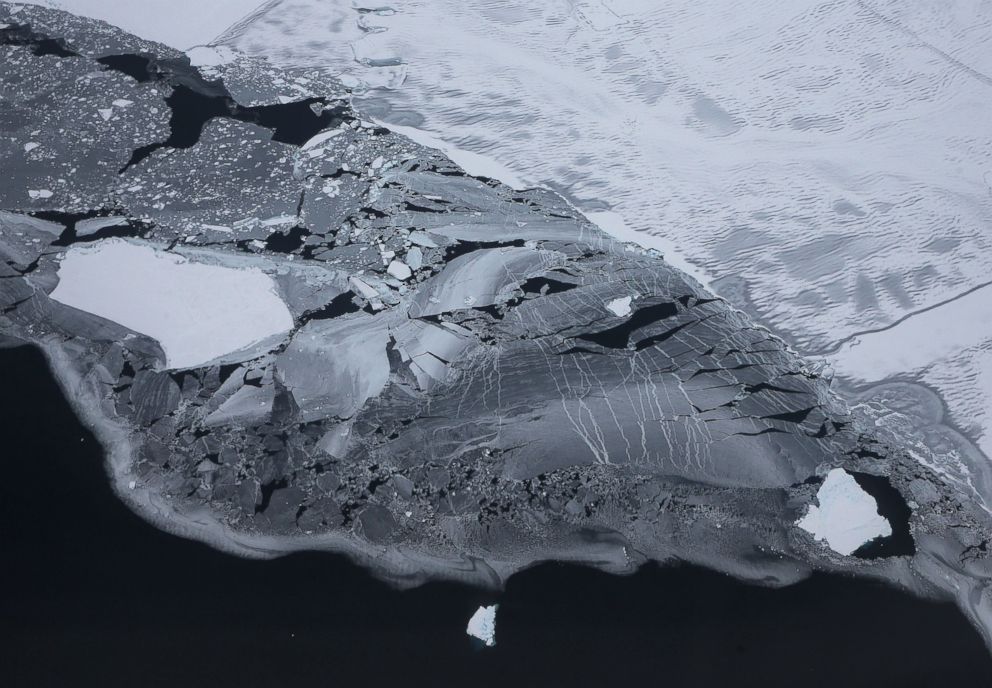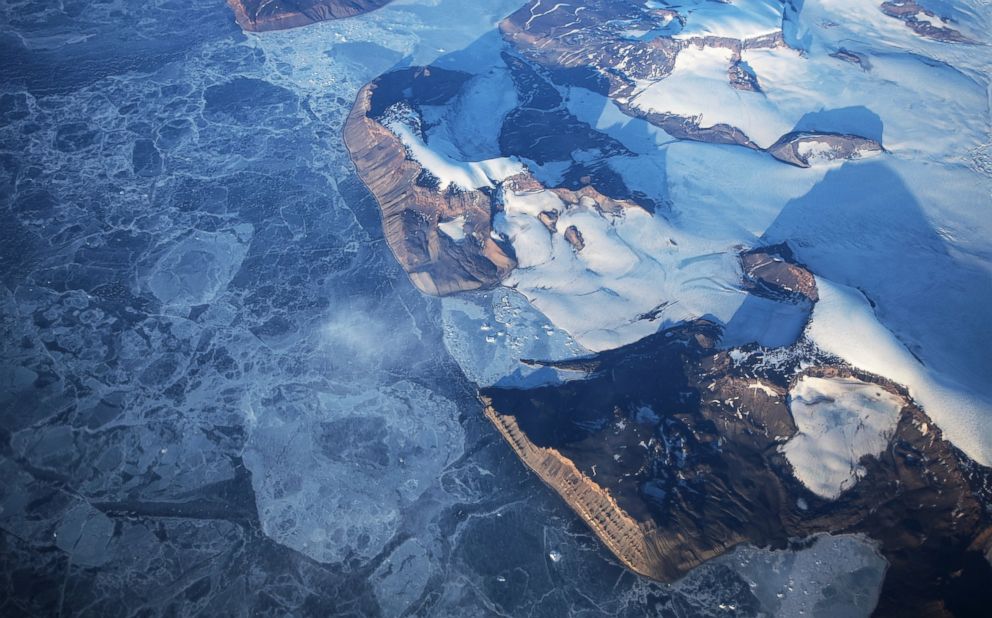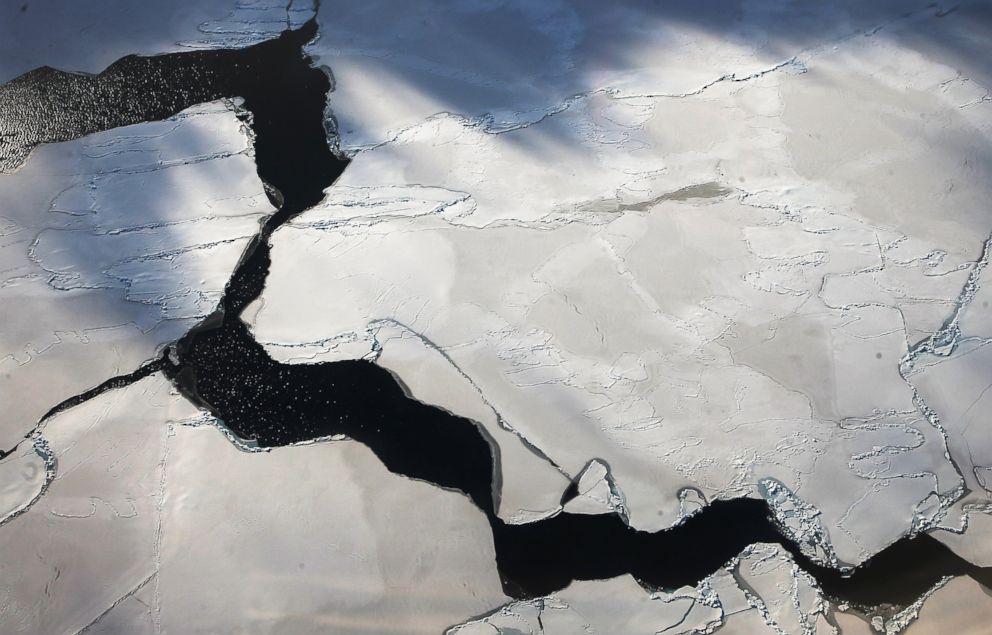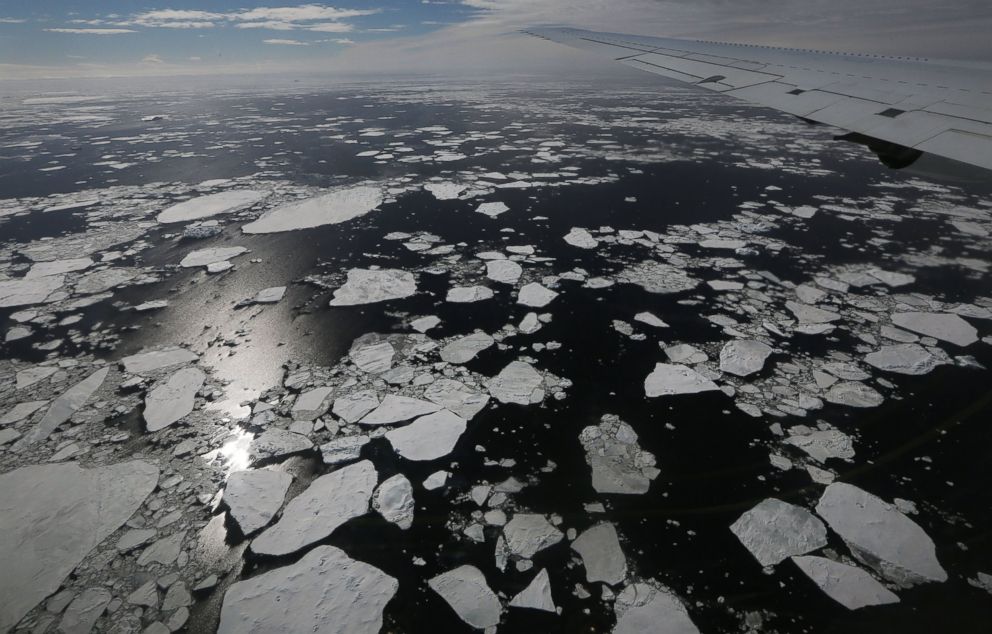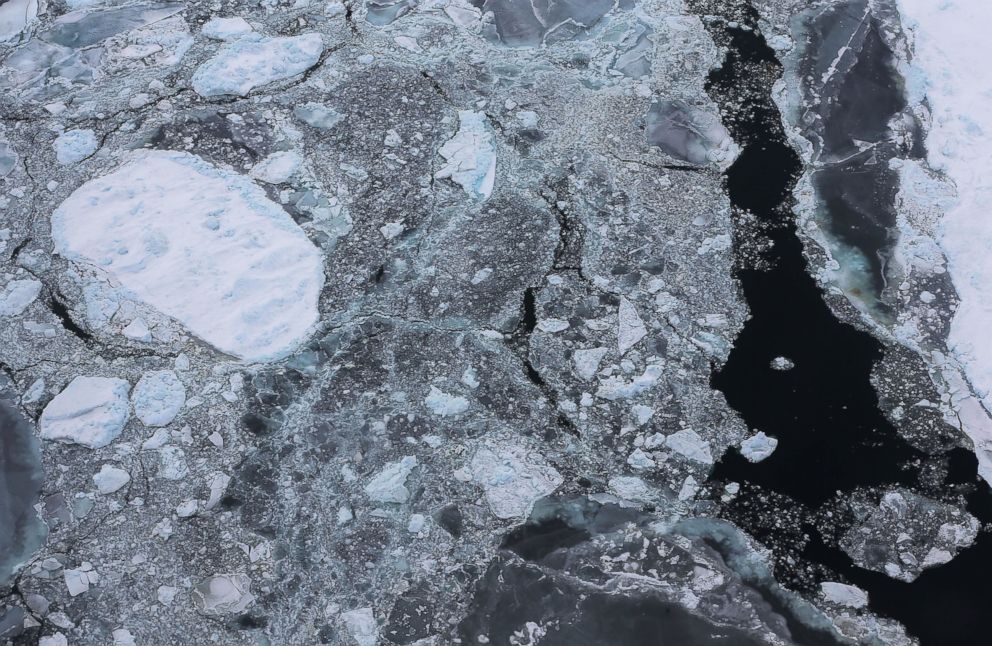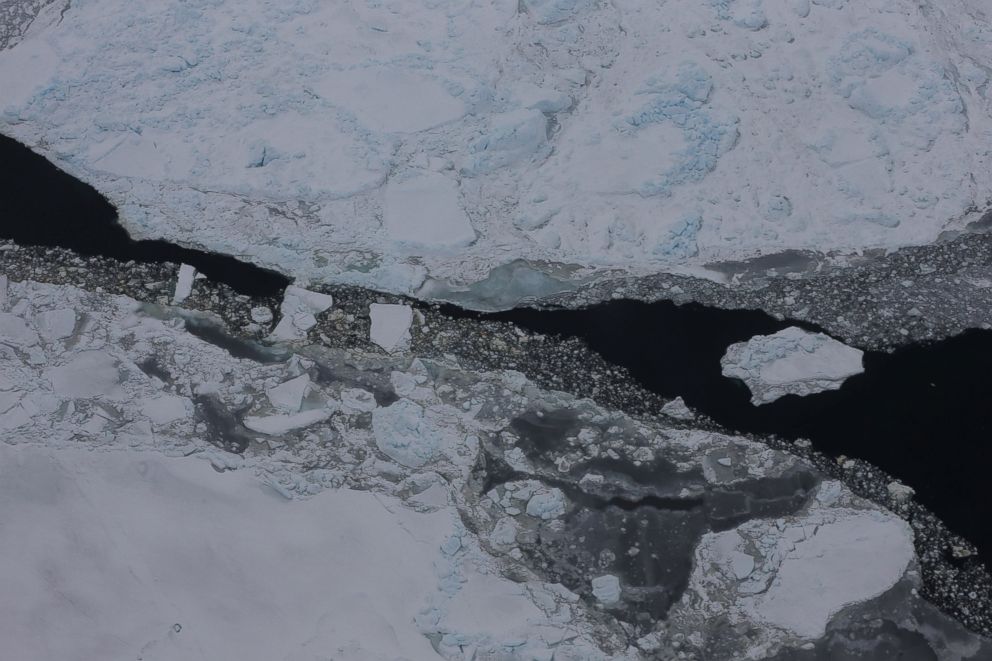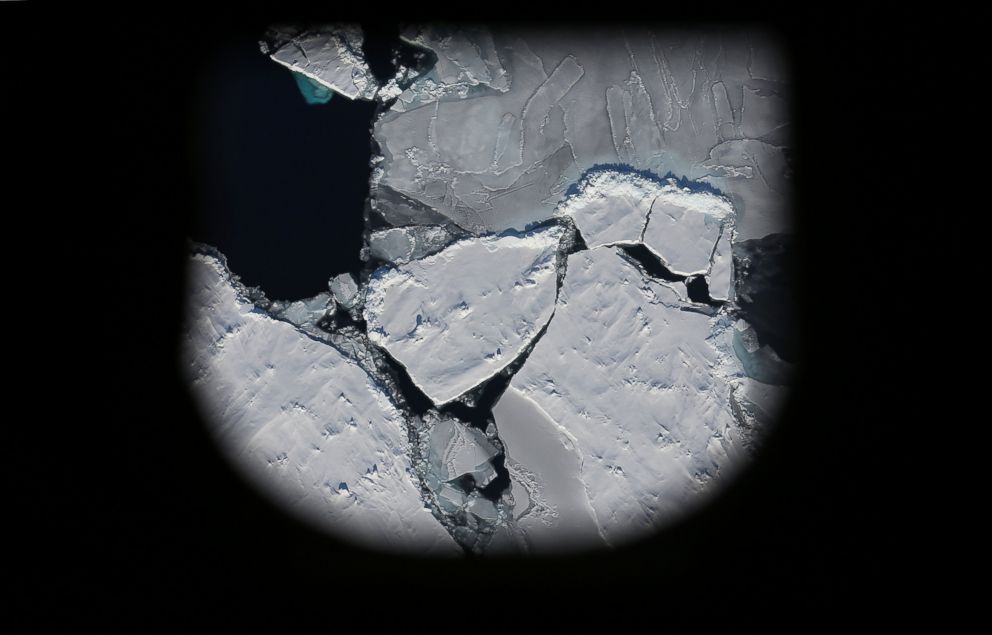What You Need to Know About the Paris Climate Agreement
— -- The U.N.-backed Paris Agreement officially became international law today, signaling a commitment from 96 world leaders that they will actively combat climate change.
"Today we make history in humankind’s efforts to combat climate change," U.N. Secretary-General Ban Ki-moon said at a press conference, calling the Paris Agreement a "milestone."
Here is a brief explainer of this "milestone" climate agreement.
What is the Paris Climate Agreement?
The Paris Agreement is an ambitious accord sponsored by the U.N. to combat global climate change. Its goal is to ensure that global temperatures do not increase more than 2 degrees Celsius (3.6 degrees Fahrenheit) above pre-industrial levels, and it aims to limit temperature increases to only 1.5 degrees Celsius above pre-industrial levels (which the U.N. refers to as the "1850-1900 reference period").
How is it going to do that?
The agreement requires all member states to reach the ambitious goal through "Nationally Determined Contributions," (NDCs) and report regularly on their global greenhouse emissions.
The first "Meeting of the Parties" will take place on Nov. 15 in Marrakesh, Morocco, during the U.N. climate talks. A statement on the U.N. website on climate change added that "countries still have to work out many of the details" as the ratification of the agreement came much sooner than anticipated.
In 2018, the states that ratified the agreement will regroup to discuss progress, as well as reassess their NDCs. In addition, there will be a progress meetings held every five years. Russia has not formally joined the accord and Japan's ratification of it has been delayed.
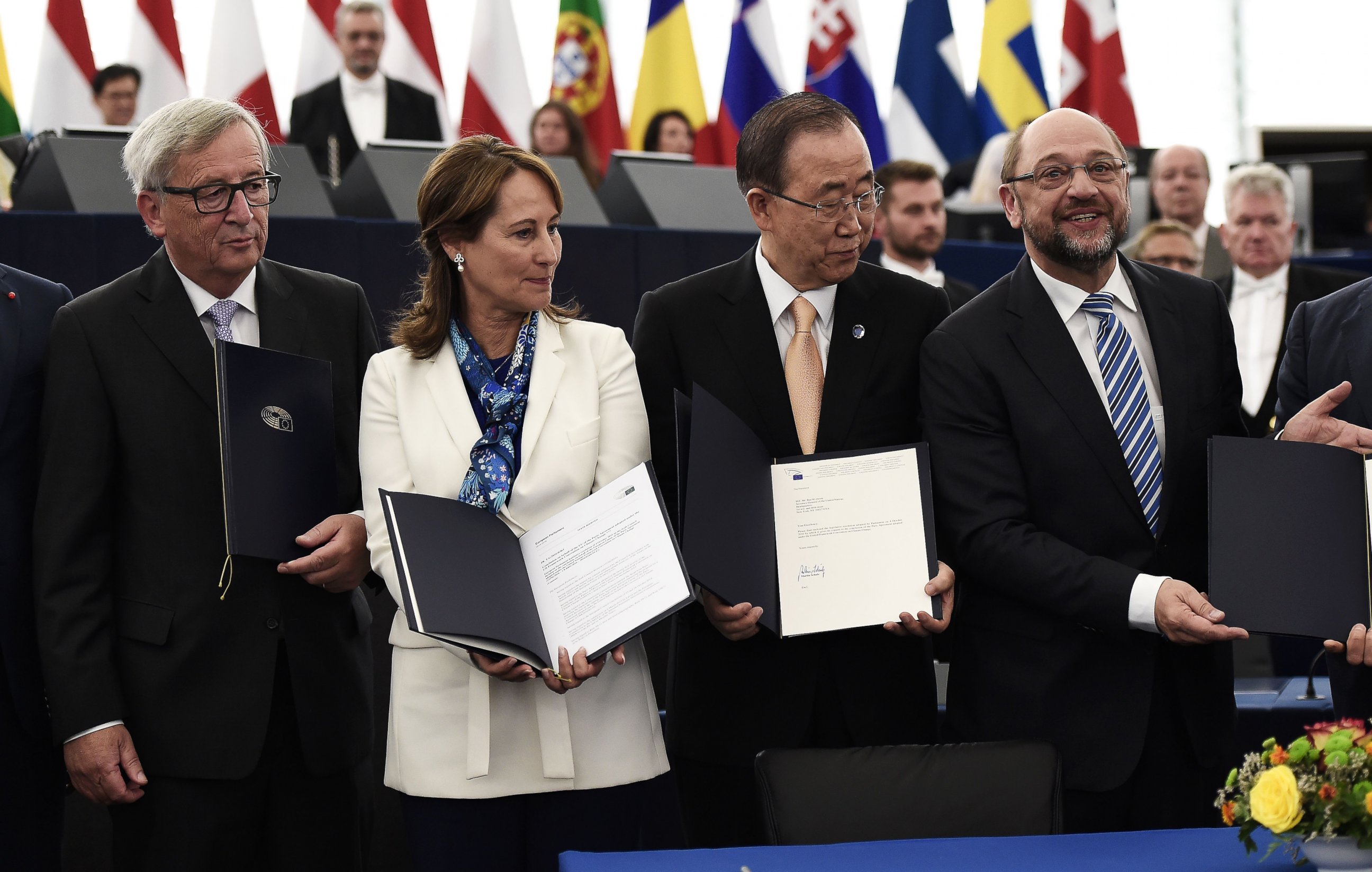
Is the world on track to meet these goals?
In short, no. A U.N. Environment Program report that was released Thursday warns that the world was not on track to meet the promises made in the Paris Agreement.
"Even with the Paris Agreement, the report warns that the world is still headed for a temperature rise of between 2.9 to 3.4 degrees centigrade this century," Stéphane Dujarric, spokesman for the Secretary-General, said in a briefing Thursday.
The report added that the world must curb global greenhouse emissions by 25 percent from predicted 2030 emissions, which are projected to be 12 to 14 gigatonnes above levels needed to limit global warming to 2 degrees Celsius. The agreement also has the long-term goal of net-zero emissions.
Secretary-General Ban added at a press conference today, "We are still in a race against time. We need to transition to a low-emissions and climate-resilient future. So I ask each and every one of you to keep up the fight. Hold governments accountable and press for action."
Is the Paris Agreement legally binding?
The Paris Agreement has a "hybrid of legally binding and nonbinding provisions," according to the U.N.'s website on climate change.
The core agreement will be binding to all parties that ratified the agreement, according to the U.N., but there are also parts of the agreement that are not legally binding.
Stunning aerial photos reveal evolving Antarctic landscape
A bird's-eye view of Antarctic ice sheets.It is unclear what happens if a country does not live up to its commitments made in the Paris Agreement.
"There is no benefit to flouting the Agreement. Any short-term time gain will be short-lived. It will undoubtedly be overshadowed by negative reactions, by other countries, financial markets, and most important, by their citizens," the U.N.'s website states.
